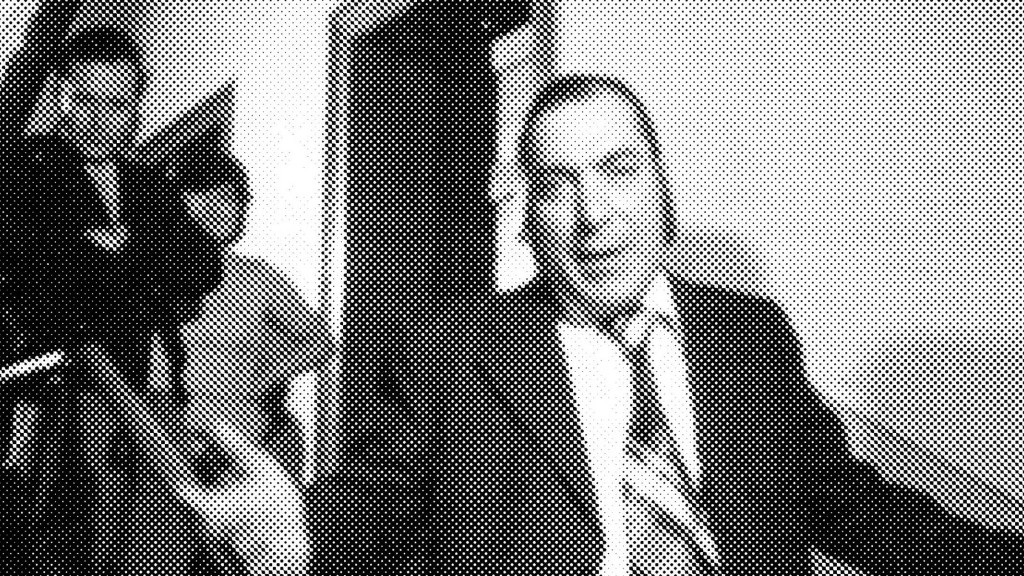- Program
- /
- Film Series
- /
- City, Country, Stranger
- /
- SHORT FILMS – CITY, COUNTRY, STRANGER
SHORT FILMS – CITY, COUNTRY, STRANGER
Followed by a talk with Alex Gerbaulet, Ezra Gerhardt-Schubert and Mareike Bernien
Das Zimmer (The Room), Johannes Beringer, BRD 1966, 15′
Inventur – Metzstrasse 11 (Stocktaking – Metzstrasse 11), Želimir Žilnik, BRD 1975, 9′
Ich deutsche Behörde (Me, German Department), Ezra Gerhardt & Alf Böhmert, BRD 1981, 24′
Nyx, Claire Hooper, UK/DE 2010, 22′
Tiefenschärfe / Depth of Field, Alex Gerbaulet & Mareike Bernien, DE 2016/17, 15′
With a focus on Berlin, the short film programme within the series City, Country, Stranger takes a look at urban space and living rooms, offices, staircases and subway stations. With documentary, artistic and essayistic approaches, the films present migrant experiences of city and daily life, violence and memory, and reflect them in their political context. A journey through five decades of an aesthetics of migration, which is increasingly supported by experimental cinematographic works, “which use film as both a means of representation and a method of exploration” (1).
(1) Jana König, Elisabeth Steffen, Conflicted Copy – ein Streifzug durch das Filmprojekt Mauern 2.0. Migrantische und antirassistische Perspektiven auf den Mauerfall. Gestern und heute, in: Frauen und Film, Heft 67: Migration, 2016, S. 25.
Das Zimmer (The Room), Johannes Beringer, BRD 1966, 15′
German original
In his film Das Zimmer (The Room) the Swiss dffb-student Johannes Beringer deals with his first experiences as a foreigner in West-Berlin, experimenting with image, sound and montage. The documentary shots of houses, streets, transport and people capture the contrast between progress and stagnation and reveal the unequal social realities of the city. Again and again the film returns to Beringer’s neighbor, a man from Lebanon, who discusses with a friend an article about the president of Egypt, Gamal Abdel Nasser, and unsuccessfully tries to find a flat.
Inventur – Metzstrasse 11 (Stocktaking – Metzstrasse 11), Želimir Žilnik, BRD 1975, 9′
German-Turkish original with English subtitles.
In the 1970s the Serbian filmmaker Želimir Žilnik lived in West Germany. At that time he made the film Inventur – Metzstrasse 11: a short film about the inhabitants of an old tenement house in Munich-Haidhausen. Standing in the staircase of the building the inhabitants – mainly guest workers – present themselves, their living conditions and future plans. They decide for themselves what and how much to tell the camera. In its formal simplicity, the film discusses a common problem from that period: apartments were intentionally overcrowded with guest workers’ families and then neglected in order to exploit them later through demolition or by selling them at a profit.
Ich deutsche Behörde (Me, German Department), Ezra Gerhardt & Alf Böhmert, BRD 1981, 24′
German original
Nearly without comment, the short film Ich deutsche Behörde shows the work of a West-Berlin foreigners’ authority in the early 1980s. First, the focus is set on “documenting the documentary” (Nicole Wolf): asylum seekers are allocated to floors and rooms, fingerprints are taken, face profiles are photographed with a measuring stick, surveys are conducted with the help of interpreters. Later, the film focuses on concrete actions in the process of deportation of persons without residence permits. From passport control to detention, until deportation from Tegel Airport, the hidden violence in the bureaucratic structures becomes visible in a brutal way.
Nyx, Claire Hooper, UK/DE 2010, 22′
English-German original
In Greek mythology, Gaia, the goddess of Earth, provides us with the topos of the city, while Nyx, the goddess of night, gives us inner freedom. The descendants of Nyx are a mighty group, embodying human characteristics such as anger, strife and friendship. With Thanatos, the god of calm death, his twin brother, Hypnos, and Hypnos’ wife, Pasithea, the goddess of hallucinations, a young man from Berlin-Kreuzberg begins an odyssey with the U7 subway line – in the direction of Spandau. The U7, whose stations were designed by the building inspector, Rainer G. Rümmler, follows the river Spree which, in the film Nyx, transforms into Lethe, the river of forgetting. The plot of the film is based on anecdotes from Kurdish friends, who are sharing a similar, but unwritten, experience of Berlin’s more recent history.
Tiefenschärfe / Depth of Field, Alex Gerbaulet & Mareike Bernien, DE 2016/17, 15′
German original with English subtitles
Nuremberg 2016. 17 years ago a bomb exploded in a bar in this city. 16, 15, 11 years ago a flower seller, a tailor, and a snack shop owner were murdered. How can a crime scene be filmed so that it can be seen as just a place? A place from which people can look at the city. A place that looks. A place that shakes and defends itself, against the film crew and the memory of the incident. Inspired by the thoughts and aesthetics of the writer, artist and filmmaker, Peter Weiss, Tiefenschärfe / Depth of Field investigates places in Nuremberg, where the so-called Nationalsozialistische Untergrund (NSU) committed murders and bomb attacks.
Funded by Landesstelle für Entwicklungszusammenarbeit des Landes Berlin (LEZ)
Mareike Bernien lives in Berlin and works as an artist between performative film, sound and text. Using a media-archaeological approach, her work questions the ideological certainties of representation, its material-technological prerequisites and historical continuities.
Alex Gerbaulet, born in 1977, lives and works as an artist, filmmaker and curator in Berlin. She studied philosophy, media sciences and liberal arts in Braunschweig and Vienna. She received numerous scholarships, her work has been exhibited internationally and her films have been screened at various festivals in Germany and abroad. She also works as a lecturer and as an independent curator for art institutions and festivals. Since 2014 she works as a writer and producer at pong film Berlin.
Ezra Gerhardt-Schubert is film director, known for the film Ich, deutsche Behörde, which he directed together with Alf Böhmert in 1981.
